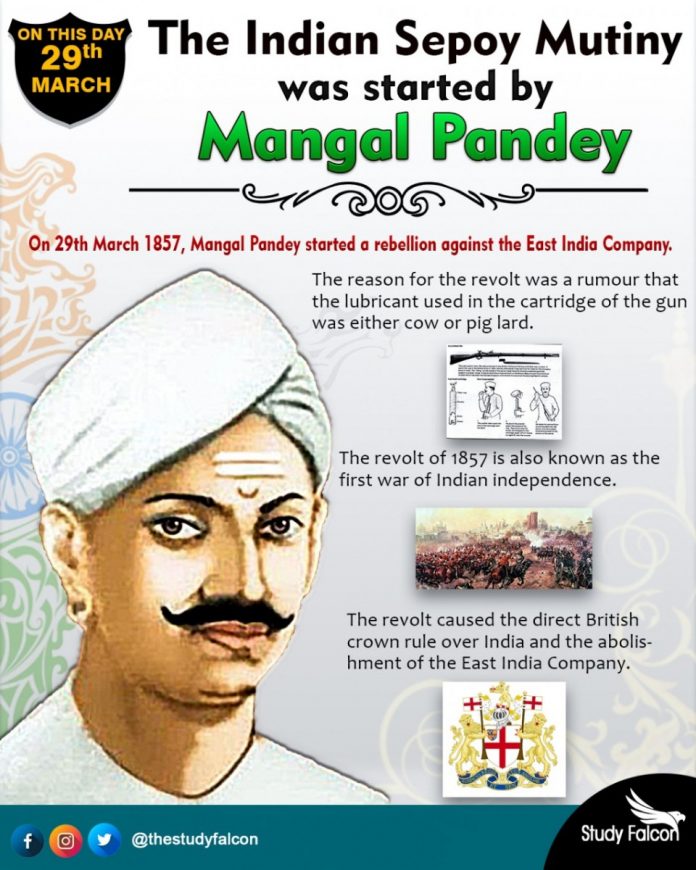- On 29 March 1857 at the Barrackpore parade ground, near Calcutta, 29-year-old Mangal Pandey of the 34th BNI, angered by the recent actions of the East India Company, declared that he would rebel against his commanders and refused orders on the parade ground.
- In the Sepoy Mutiny of 1857, three regiments of the Indian Army refused to use the ammunition of the Enfield Rifles and demanded that Bahadur Shah Zafar take over the emperor of India as the head of the rebel. Mangal Pandey was one of the key figures of this rebellion who was among the first to attack the British regiment.
- The British Raj had caused widespread unrest and discontentment among the people of India. The Hindu soldiers protested against the addition of Gurkha, Sikh, and lower caste soldiers to their ranks. The use of animal grease on the cartridges of the newly introduced Enfield rifles further escalated the discontentment.
- The main reason is usually attributed to the British introducing a new type of Enfield rifle that required soldiers to bite off the ends of the cartridge to load the gun. The rumour was that the lubricant is used in the cartridge was either cow or pig lard. The Hindus who consider the cow holy were appalled, while Muslims, consider the pig unholy and hence were furious with its use in the cartridge.
- While many of Mangal Pandey’s fellow soldiers supported him and joined his rebellion, he was subsequently arrested and court-martialled, and hanged 2 days later.
- His supporters were also sentenced to death and hanged. The regiment was disbanded and stripped of its uniforms because it was felt that it harboured ill-feelings towards its superiors, particularly after this incident.
- Sepoys in other regiments thought these punishments were harsh. The demonstration of disgrace during the formal disbanding helped foment the rebellion in view of some historians. Disgruntled ex-sepoys returned home to Awadh with a desire for revenge.
- Mangal Pandey’s killing caused a rebellion across North India which gradually spread to the entire nation. The revolt of 1857 thus came to be known as the first war of Indian independence.
- Soon after, 90,000 more men joined the mutiny. Although they suffered major losses in Kanpur and Lucknow, the British retracted to the Sikh and Gurkha forces and could ward off the rebel army near Delhi.
- The 1857 Mutiny caused the British Parliament to pass an act to abolish the East India Company and India became a crown colony for the British to directly govern. Queen Victoria passed a policy of divide and rule, preventing the Indians to rebel against her.
- However, Mangal Pandey ignited the spark that 90 years from the start of the Sepoy Mutiny gave India its independence.










